Most state lawmakers are pro-voter—they take their duty seriously to make it easy to vote and hard to cheat. Others seem to be trying to make it difficult to vote, and especially burdensome to vote absentee. Which is a problem this year when people might be putting their lives at risk by showing up at a crowded polling place. While researching ways that states can make it safe and secure for voters to fill in their ballot at home and putting together our in-depth guides for states to ramp up Vote By Mail by November, we were struck in particular by these four unnecessary requirements, apparently aimed at keeping people from voting.
VOTE BY MAIL FOR SECURE ELECTIONS IN 2020
1. Throwing votes away without warning
Most states use voters’ signatures to verify their ballot. Sometimes, there is a problem such as the voter forgot to sign, or their signature looks different than what is on file because they signed too fast or because (as happens with most people) their signature changed over time and the signature on file is old. Pro-voter states set those ballots aside, notify voters of the problem, and give them a chance to “cure” the ballot—verify their identity and their vote. Most voters fix the problem and their vote gets counted.
Twenty-four states just throw those ballots away. Imagine those voters, thinking their voice was heard, not knowing their ballot got thrown in the trash.
Five states (Alaska, South Carolina, Tennessee, Texas, and Virginia) toss ballots they can’t verify and then tell voters their vote wasn’t counted, but don’t give them a chance to fix it. At least those voters know their vote wasn’t counted, yet what bitter knowledge. Perhaps they will now remember to sign more carefully next time. Better yet, give them a chance to re-sign and be counted this time.
2. Requiring voters to apply for an absentee ballot. Every. Single. Election
Twenty-two states (Alabama, Arkansas, Connecticut, Georgia, Idaho, Illinois, Indiana, Iowa, Kentucky, Maine, Maryland, Minnesota, Mississippi, Nebraska, New Hampshire, New Mexico, Oklahoma, Rhode Island, Pennsylvania, South Carolina, Tennessee, Vermont) require voters who want to vote absentee to fill out an application and turn it in every single election. Primary in March? Fill out an application. Special election in May? Fill out an application. Local election in August? Fill out an application. General election in November? Fill out an application.
This isn’t just an unnecessary barrier for voters. It’s an incredible cost for election administrators who have more important things to do. Especially this year. Millions of Americans signed up to vote absentee in the spring primaries, and since the coronavirus pandemic continues to rage in the United States, those voters will likely want to vote from home again in upcoming fall elections, and again in the November general election. They could have just checked the box to keep voting absentee and saved everyone a lot of time. Instead, election administrators will continue to drown in paperwork from the same voters requesting the same thing (an absentee ballot) again and again.
Seven jurisdictions (Arizona, California, DC, Michigan, Montana, Nevada, New Jersey) have cut down on paperwork by letting voters choose to permanently vote by mail, while another five (Colorado, Hawaii, Oregon, Utah, Washington) eliminated this step altogether and send all registered voters a ballot. Because of the pandemic, California, DC, Nevada, and Vermont will also mail ballots to all registered voters this year. Six states (Kansas, Massachusetts, Missouri, New York, West Virginia, Wisconsin) allow some voters to permanently vote absentee—but why not let any voter do so? Another nine (Alaska, Florida, Louisiana, Delaware, North Dakota, Ohio, South Dakota, Texas, Wyoming) at least let voters sign up to vote absentee for all elections in a given year.
3. Barring community groups from collecting signed, sealed ballots
Many states require ballots to be delivered to election officials by Election Day. This means that dropping it in the mail on Election Day, or even a few days before, isn’t good enough and your vote might not be counted. If time is getting down to the wire and you don’t have a car or time off work, you might not be able to get your ballot in on time. Community groups can help by collecting signed, sealed ballots in their neighborhood and delivering them all to a polling place before the election deadline.
For some Americans, this is more than just a helpful convenience. Indigenous people living on tribal lands often don’t have easy access to postal service, or a drop box, or reliable transportation to travel the (sometimes hours) necessary to get to a post office box or drop box. Community groups that collect signed, sealed ballots from these voters and get them to election officials on time are protecting native peoples’ right to vote.
Yet many states have barred this practice. A few states (Kentucky, Mississippi, Tennessee) have gone so far as to prohibit anyone, even the voter, from returning their absentee ballot in person. Voters must put it in the mail in time or risk not being counted.
Advocates have fought back in court with some success. Notably, the 9th Circuit Court of Appeals overturned an Arizona ban because it discriminated against American Indian, Hispanic, and African American voters who relied on such community groups. And a Montana state court recently issued a preliminary injunction against a similar ban in Montana.
4. Requiring voters to notarize ballots and then limiting the number each notary can notarize
When it comes to outlandish rules seemingly designed to keep people from safely voting, Oklahoma takes the cake. A state law passed in 2012 requires every absentee voter to get their ballot notarized, and also limits each individual notary to only 20 ballots. The state prohibits notaries from charging to notarize absentee ballots. While it is wise of the state to not violate the Constitution’s prohibitions on poll taxes, requiring them to give their services away for free doesn’t motivate notaries to want to help voters.
Imagine you are a registered voter in Oklahoma and you decide to play it safe and vote absentee rather than risk the virus-spreading lines on Election Day. You fill out your ballot and see in the instructions that you need to get it notarized. You start calling notaries but many of them aren’t seeing clients in-person for fear of spreading coronavirus. You finally find one who is open and drive to their office, but they’ve already hit their 20-voter limit. How long do you keep trying before you give up on your right to vote?
(In 2015, the legislature loosened this to allow notaries to go beyond 20 if they were all notarized at their place of business during business hours, so they couldn’t go to people’s homes or community events or polling places.)
On May 4, the Oklahoma Supreme Court overturned the notary requirement, ruling that Oklahomans do not have to notarize their ballots. Voters could sign a statement verifying their identity. State politicians lost no time passing a bill, on May 7, reinstating the notary requirement in typical election years and requiring voters to not only sign an affidavit but include a photocopy of their ID. This is in part because Oklahoma doesn’t have signatures on file that they can use to verify ballots, as other states do. Rather than get their own house in order, state lawmakers put the burden on voters to get access to a photocopier or go to the effort of finding a notary. The notary rule is especially burdensome as coronavirus lockdowns continue.
It’s easy being pro-voter
How pro-voter is your state? And what could election officials and lawmakers do to help voters safely and securely vote this year and beyond? Find out your state’s grade for election readiness during coronavirus outbreaks—and our specific state-by-state recommendations here.
VOTE BY MAIL FOR SECURE ELECTIONS IN 2020
Kristin Eberhard, Director, Climate and Democracy, is a researcher, writer, speaker, lawyer, and policy analyst who spearheads Sightline Institute’s work on democracy reform and on climate action. She researches, writes about, and speaks about elections systems and democracy reform, with particular expertise on Vote By Mail and proportional representation. Eberhard lives in Oregon, an all-Vote By Mail state. She is available to discuss tested, safe, fair COVID-19 election practices, state by state. Find all Eberhard’s latest research here. For interviews, speaking engagements, and media inquiries, contact Anna Fahey.
Zane Gustafson is a freelance researcher who holds a master of public affairs degree, with a focus in climate policy, from the Evans School of Public Policy and Governance at the University of Washington. He also studies foreign affairs, political rhetoric, and American history.
Sightline is a 501(c)3 non-profit organization and does not support, endorse, or oppose any candidate or political party.

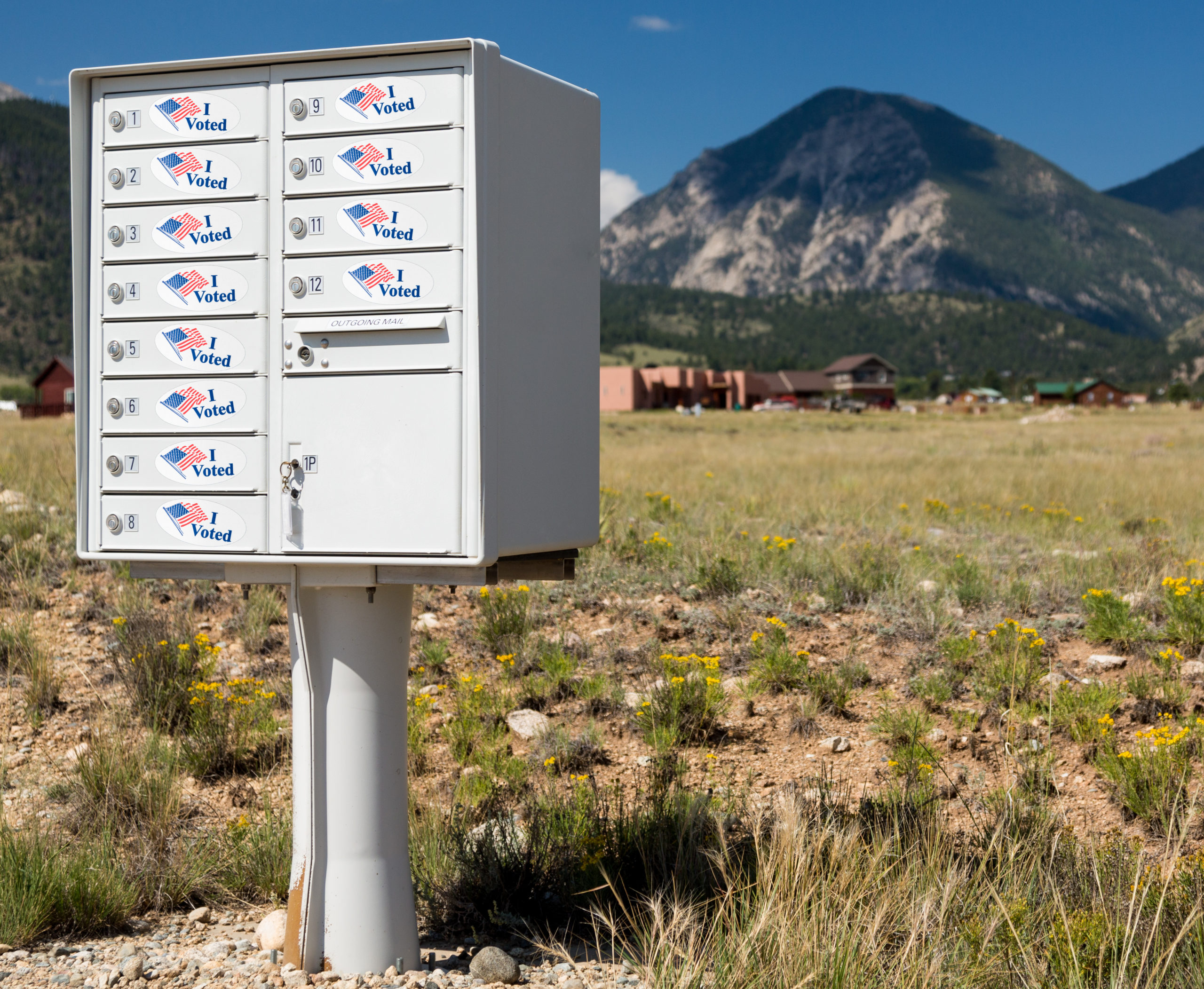
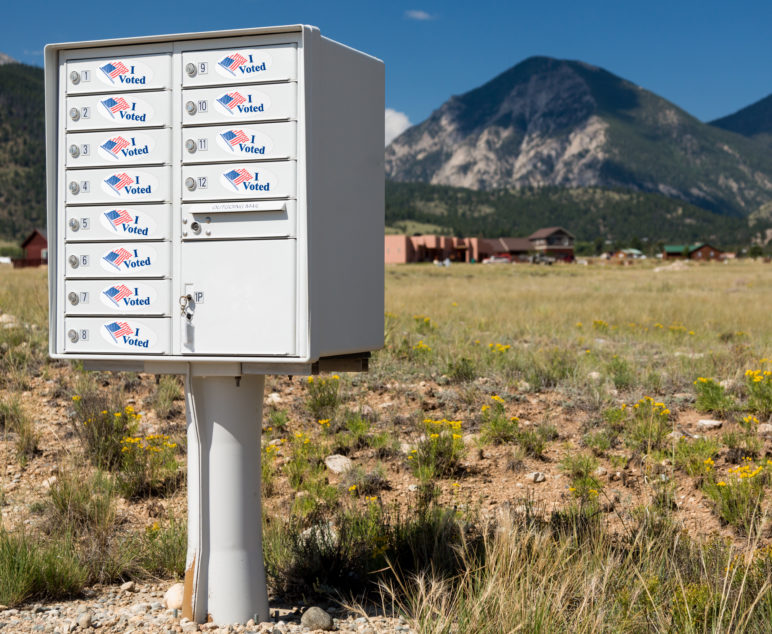


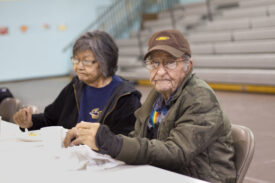
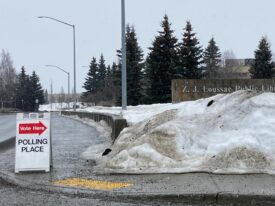
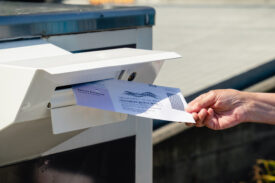
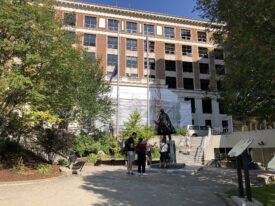
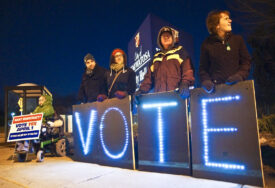

Linda
Today, DJT says the fall elections will be invalid, saying that it’s China’s fault for not containing COVID-19. This cannot happen! The White House seems set on creating as much chaos as possible as the days tick down to November 3.
Janelle Woolsey
Thank you.